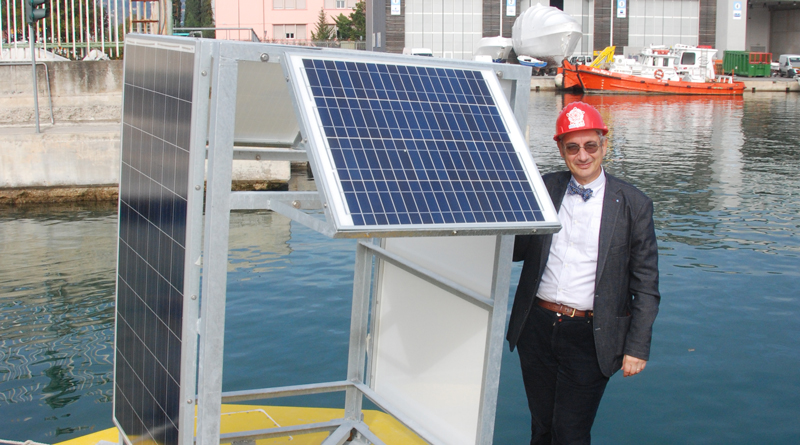 Elected head of KM3NeT, the international project for the construction of a new generation submarine telescope dedicated
Elected head of KM3NeT, the international project for the construction of a new generation submarine telescope dedicated
to the study of neutrinos, Mauro Taiuti will coordinate the collaboration of scientists, as well as from INFN, from nearly 40 institutions from 11 countries: Cyprus, France, Germany, Greece, Italy, Morocco, the Netherlands, Poland, Romania, Russia and Spain. Born in Genoa in 1957, Taiuti joined INFN as a researcher in 1984 and since 1999 he has been a professor at the University of Genoa. At the JeffersonLab, in the United States, he studied the effects of nuclear matter on baryon resonances with the AIACE experiment, for which he was national coordinator. Since 2001 he has been participating in the implementation of the telescope for the study of very high energy neutrinos, first in the ANTARES and NEMO experiments and subsequently in KM3NeT, he has been chairman of the Institute Board of the collaboration for four years. Since September 2011, he has been chairman of the INFN National Commission 3, which coordinates the institute's nuclear physics research.
Situated in the Mediterranean Sea, 3500 metres deep off the coast of Capo Passero, Sicily, where it will occupy, in its final configuration, a volume of several cubic kilometres of sea, the KM3NeT will exploit seawater as a detector to study neutrinos coming from distant astrophysical sources, such as supernovae or gamma-ray bursts. A recent research expansion project plans to extend the study to
the oscillations of atmospheric neutrinos, providing the infrastructure with a new detector. KM3NeT will also accommodate instrumentation for environmental studies and monitoring, making it a true multidisciplinary laboratory in the depths of the seas.






